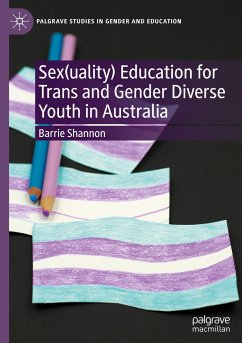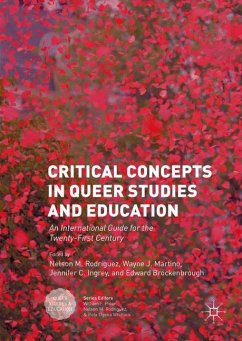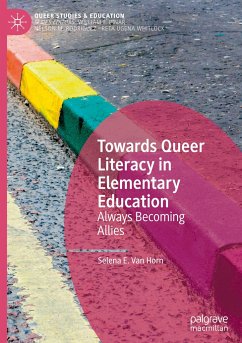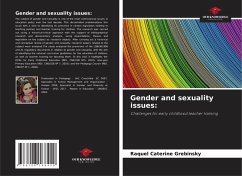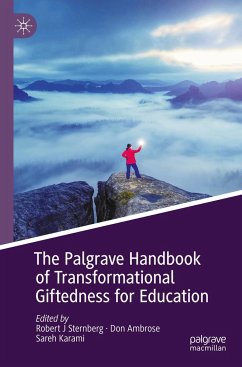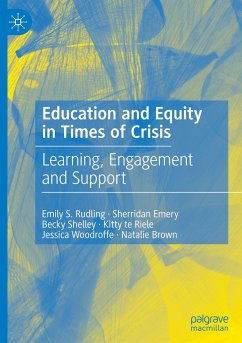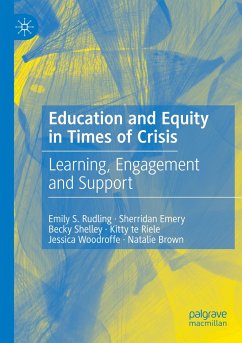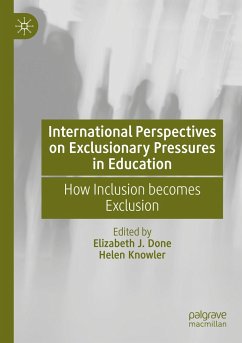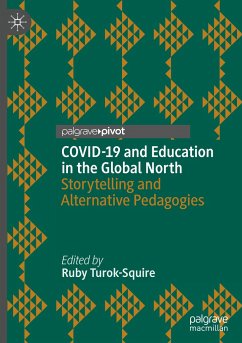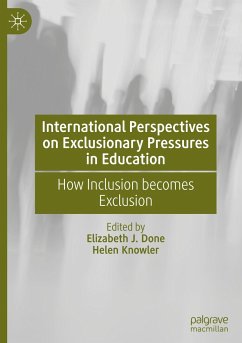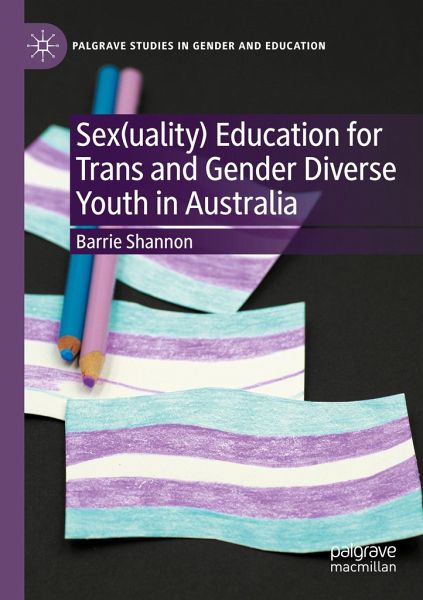
Sex(uality) Education for Trans and Gender Diverse Youth in Australia
Versandkostenfrei!
Versandfertig in 6-10 Tagen
106,99 €
inkl. MwSt.
Weitere Ausgaben:

PAYBACK Punkte
53 °P sammeln!
This book examines young trans and gender diverse Australians' views of school-based sex education. The analysis is informed by a queer epistemology that acknowledges the systematic and institutional erasure of trans subjectivities through highly medicalised systems of categorisation. Drawing on primary qualitative data, the author emphasises the accounts of trans and gender diverse young people as they relate to sex education at school, and how they undertake informal learning about sex, gender and identity in other areas of their lives.Ultimately, the book problematises the assumption that t...
This book examines young trans and gender diverse Australians' views of school-based sex education. The analysis is informed by a queer epistemology that acknowledges the systematic and institutional erasure of trans subjectivities through highly medicalised systems of categorisation. Drawing on primary qualitative data, the author emphasises the accounts of trans and gender diverse young people as they relate to sex education at school, and how they undertake informal learning about sex, gender and identity in other areas of their lives.Ultimately, the book problematises the assumption that the sex education classroom is the most appropriate vehicle for social justice education in relation to queer issues. Queer issues and sex education tend to be packaged together discursively, deliberately or by association in dominant media narratives. However, this discourse constrains queer identities to the realm of sex and health, and therefore does not engage with the social citizenship ofqueer people. Further, this limits the capacity of schools and teachers to meaningfully explore diversity in the classroom, as sex education is front-and-centre in the so called 'culture wars' about gender, sexuality, youth and schools.





